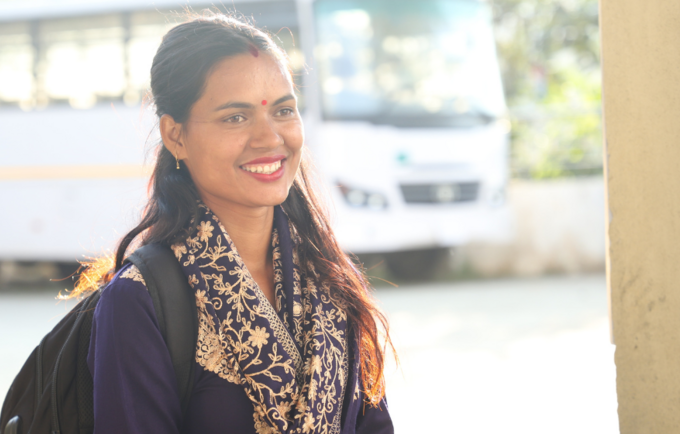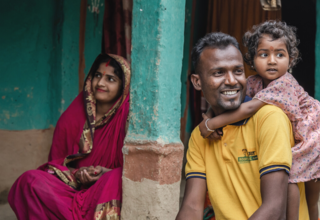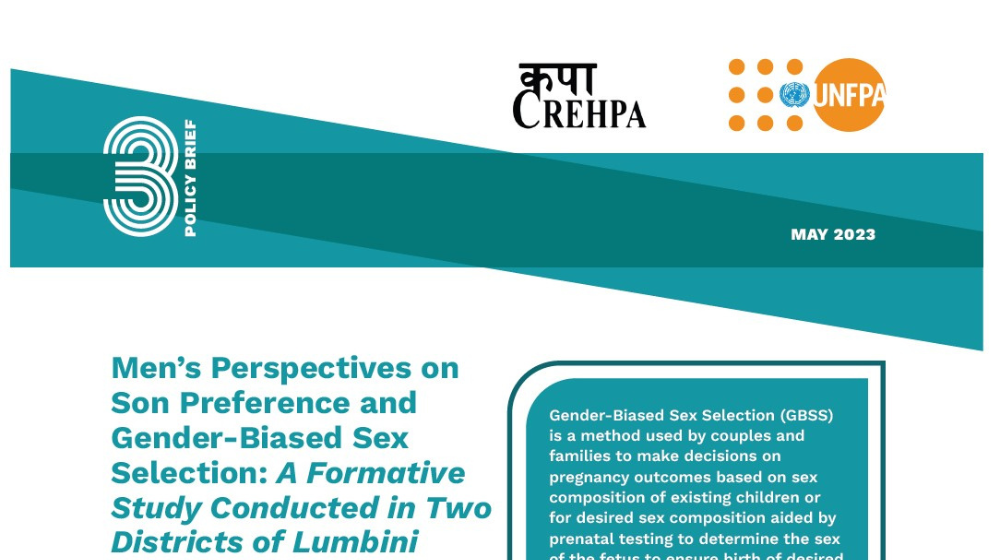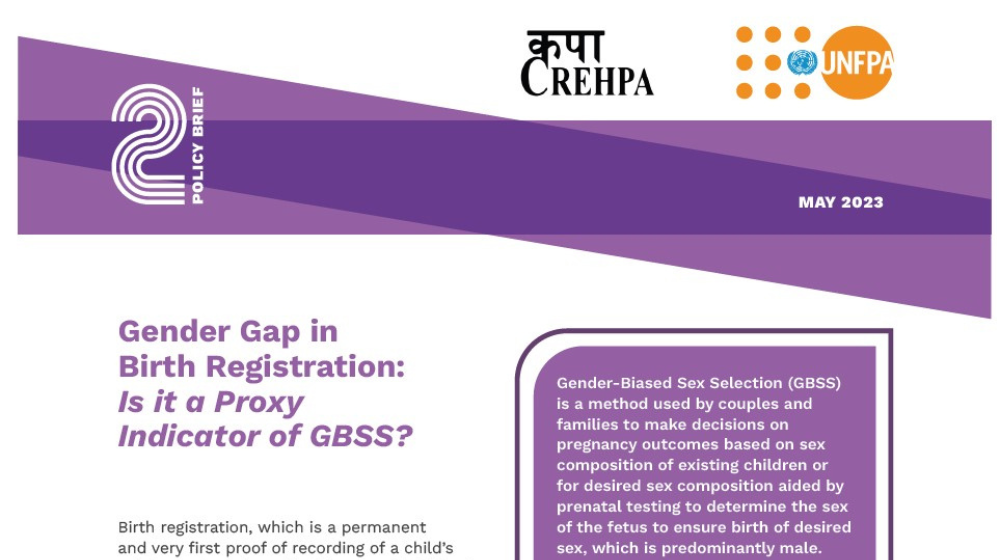Through sunshine and rain, Jigyasha travels 4-5 hours daily just to meet with community members in the Dailekh District of the Karnali Province in Nepal. She is one of 3 Community-based Psychosocial Workers (CPSW) trained* to carry out awareness sessions against gender-based violence (GBV) in the community, identify and provide basic psychosocial support to GBV survivors, make home visits, and refer cases to One-Stop Crisis Management Centers (OCMCs), Police or other service providers.
CPSWs hold a unique place in both GBV prevention and response. They sometimes have a direct entry into households within the community as they are seen as one of their own and as such, families may be more comfortable in opening up to them (if they have served for a long time) than face authority figures. This also means that even during a pandemic, their work never stops - on the contrary, it only intensifies!
Their journey is not easy. Not only do they travel tirelessly for several kilometers a day just to reach families in need, but they also do it facing several other obstacles along the way.
Jigyasha recollects a 28 year old GBV victim who she recently supported in the area.
Shri** got married at the age of 16 and has two sons. She lives with her husband, who from the day she got married has been regularly beating her and depriving her of food. She lived a painful life and overtime, due to lack of food and nourishment, her health was severely compromised. But even in such a condition, her husband used to drink alcohol daily and beat her. Having full control of the household and the finances of the home, Shri was not given any food or medication even as her condition aggravated. Finally, she left the house and went on to stay with her parents.
When Jigyasha came to know about this, she tried to intervene, but Shri’s own parents forced her to go back to her husband. Jigyasha tried to convince them to at least get medical help for their daughter but it was in vain. She faced heavy resistance from her own family.
Taking matters into her own hands, Jigyasha took Shri to the closest provincial OCMC in Surkhet, from where she received the necessary treatment. Once she was feeling better, she was also given legal support and advice to file a case against her husband. After weeks of counseling, Shri went back home. She is very thankful for the support received from the CPSW who continues to make ad hoc home visits to check in on her.
Jigyasha feels happy to be able to intervene and make a difference in people’s lives but it also comes at a cost. Encounters such as this can be traumatic for CPSWs. It can also bring back past memories of their own personal lives. Jigyasha remembers what got her started on this journey in the first place - the abuse and violence she saw in her own home where her mother suffered immensely. Yet, in a strange way, this also motivates her to continue the goodwork.
As a 24-year old mother of 2, Jigyasha performs her tasks with pride. She has her own share of problems with her mother diagnosed with Alzheimer's and her father still recovering from a recurring accident injury. Her own husband and mother-in-law were not in favor of her undertaking this job but seeing her passion and dedication, they now understand what she does and the difference she makes not just in people’s lives but in the community at large.
Her dedication has also been recognized by the Local Government. For example, as a result of her advocacy efforts, NPR 50,000 has been allocated by Ward no. 13 and NPR 150,000 by Ward no. 12 of Dullu municipality in the Dailekh District, for GBV survivors and GBV prevention activities in the fiscal year 2020/2021.
"We are really happy to find a hardworking and dedicated team member in our Ward. We will continue lobbying to appoint a new CPSW like Jigyasha to work on this initiative of GBV prevention and response, even after the project is over ", says Ms. Amrita Shahi, the Executive Member of Ward number 13 of Dullu municipality in the Dailekh District of Karnali Province. Mr. Surya Bahadur Shahi, the Ward Chairperson, added "now that the budget for the GBV survivors is endorsed in this ward, I am sure this initiative is going to continue in the upcoming fiscal year as well.”
And so she continues her journey to help GBV survivors in any way she can - through sunshine and rain.
*Ends*
*The CPSWs are trained and mobilized under the European Union funded COVID-19 Crisis Response on Gender Based Violence project implemented in Dailekh, Jumla, Surkhet and Dhanusha districts of Karnali Province and Madhesh Province since August 2020 by the United Nations Population Fund with support from partners such as the Center for Mental Health and Counseling (CMC), Sancharika Samuha and the Women’s Rehabilitation Centre (WOREC).
**Names have been changed to maintain confidentiality.
If you are facing any form of gender-based violence, please visit the nearest One-Stop Crisis Management Center (OCMC) or contact the 24-hour National Women Commission's hotline 1145.




